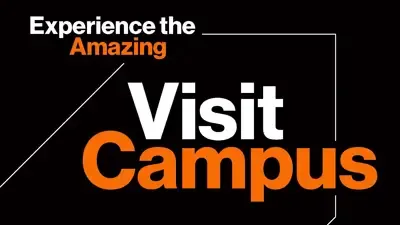Engineering Management Master of Engineering Degree
- RIT /
- Rochester Institute of Technology /
- Academics /
- Engineering Management ME
RIT's ME in engineering management provides the skills and expertise to manage engineering initiatives and address technological business challenges.
Overview for Engineering Management ME
This program is no longer accepting new student applications.
Engineers are problem solvers. They actively seek out problems in order to design and develop solutions that lead to innovative products, improvements to people's lives, and solutions that better the world. But engineers don't always speak that same language as business leaders. That's when an engineering management master's degree can make a profound difference.
RIT’s Engineering Management Master’s Degree
The engineering management master’s degree combines technical expertise with managerial skills to focus on the management of engineering and technological business challenges. You will learn the technology involved in engineering projects and the business processes through which technology is applied. The objective is to provide you with a solid foundation in organizational behavior, finance, and accounting, the areas commonly needed by managers who oversee engineers and engineering projects.
A Collaborative Master’s of Management for Engineers
The engineering management master’s degree is a blend of courses from the department of industrial and systems engineering in RIT’s Kate Gleason College of Engineering and Saunders College of Business. This creates a hybrid curriculum combining technological expertise with managerial skills.
Students in the engineering management program often take advantage of cooperative education opportunities. Cooperative education is optional but strongly encouraged for graduate students in the engineering management master’s program. Co-op is hands-on, paid career experience where you can experience in industry before you graduate. Students’ co-op experiences enrich classroom discussions, and set our students apart in the job market.
Curriculum for Engineering Management ME
Current Students: See Curriculum Requirements
Engineering Management, ME degree, typical course sequence
| Course | Sem. Cr. Hrs. | |
|---|---|---|
| First Year | ||
| ISEE-750 |
Systems and Project Management
This course ensures progress toward objectives, proper deployment and conservation of human and financial resources, and achievement of cost and schedule targets. The focus of the course is on the utilization of a diverse set of project management methods and tools. Topics include strategic project management, project and organization learning, chartering, adaptive project management methodologies, structuring of performance measures and metrics, technical teams and project management, risk management, and process control. Course delivery consists of lectures, speakers, case studies, and experience sharing, and reinforces collaborative project-based learning and continuous improvement. (Prerequisites: ISEE-350 or equivalent course or students in ISEE-MS, ENGMGT-MS, PRODDEV-MS, MFLEAD-MS, or MIE-PHD programs or BIME-BS students with a BIMEISEE-U subplan.) Lecture 3 (Fall).
|
3 |
| ISEE-771 |
Engineering of Systems I
The engineering of a system is focused on the identification of value and the value chain, requirements management and engineering, understanding the limitations of current systems, the development of the overall concept, and continually improving the robustness of the defined solution. EOS I & II is a 2-semester course sequence focused on the creation of systems that generate value for both the customer and the enterprise. Through systematic analysis and synthesis methods, novel solutions to problems are proposed and selected. This first course in the sequence focuses on the definition of the system requirements by systematic analysis of the existing problems, issues and solutions, to create an improved vision for a new system. Based on this new vision, new high-level solutions will be identified and selected for (hypothetical) further development. The focus is to learn systems engineering through a focus on an actual artifact (This course is restricted to students in ISEE-MS, PRODDEV-MS, MFLEAD-MS, ENGMGT-MS, MIE-PHD, BIME-BS students with a BIMEISEE-U subplan, ISEE-BS students with a ISEEMS-U or ISEEEGMT-U subplan, or those with 5th year standing in ISEE-BS or ISEEDU-BS.) Lecture 3 (Fall, Spring).
|
3 |
| ISEE-760 |
Design of Experiments
This course presents an in-depth study of the primary concepts of experimental design. Its applied approach uses theoretical tools acquired in other mathematics and statistics courses. Emphasis is placed on the role of replication and randomization in experimentation. Numerous designs and design strategies are reviewed and implications on data analysis are discussed. Topics include: consideration of type 1 and type 2 errors in experimentation, sample size determination, completely randomized designs, randomized complete block designs, blocking and confounding in experiments, Latin square and Graeco Latin square designs, general factorial designs, the 2k factorial design system, the 3k factorial design system, fractional factorial designs, Taguchi experimentation. (Prerequisites: ISEE-325 or STAT-257 or MATH-252 or MCEE-205 or STAT-205 or equivalent course or students in ISEE-MS, ENGMGT-MS, or MIE-PHD programs.) Lecture 3 (Spring).
|
3 |
| ACCT-794 |
Cost Management in Technical Organizations
A first course in accounting for students in technical disciplines. Topics include the distinction between external and internal accounting, cost behavior, product costing, profitability analysis, performance evaluation, capital budgeting, and transfer pricing. Emphasis is on issues encountered in technology intensive manufacturing organizations. *Note: This course is not intended for Saunders College of Business students. (Enrollment in this course requires permission from the department offering the course.) Lecture 3 (Spring).
|
3 |
|
ISEE Engineering Management Elective
|
3 | |
|
Engineering Management Elective
|
3 | |
| Second Year | ||
|
Engineering Management Elective
|
6 | |
|
ISEE Engineering Management Elective
|
3 | |
| ISEE-792 |
Engineering Capstone
Students must investigate a discipline-related topic in industrial and systems engineering. The general intent of the engineering capstone is to demonstrate the students' knowledge of the integrative aspects of a particular area. The capstone should draw upon skills and knowledge acquired in the program. (This course is restricted to students in ISEE-MS, ENGMGT-MS, PRODDEV-MS, MFLEAD-MS, BIME-BS students with a BIMEISEE-U subplan, or ISEE-BS students with a ISEEMS-U or ISEEEGMT-U subplan.) Lecture 3 (Fall, Spring).
|
3 |
| Total Semester Credit Hours |
30
|
|









